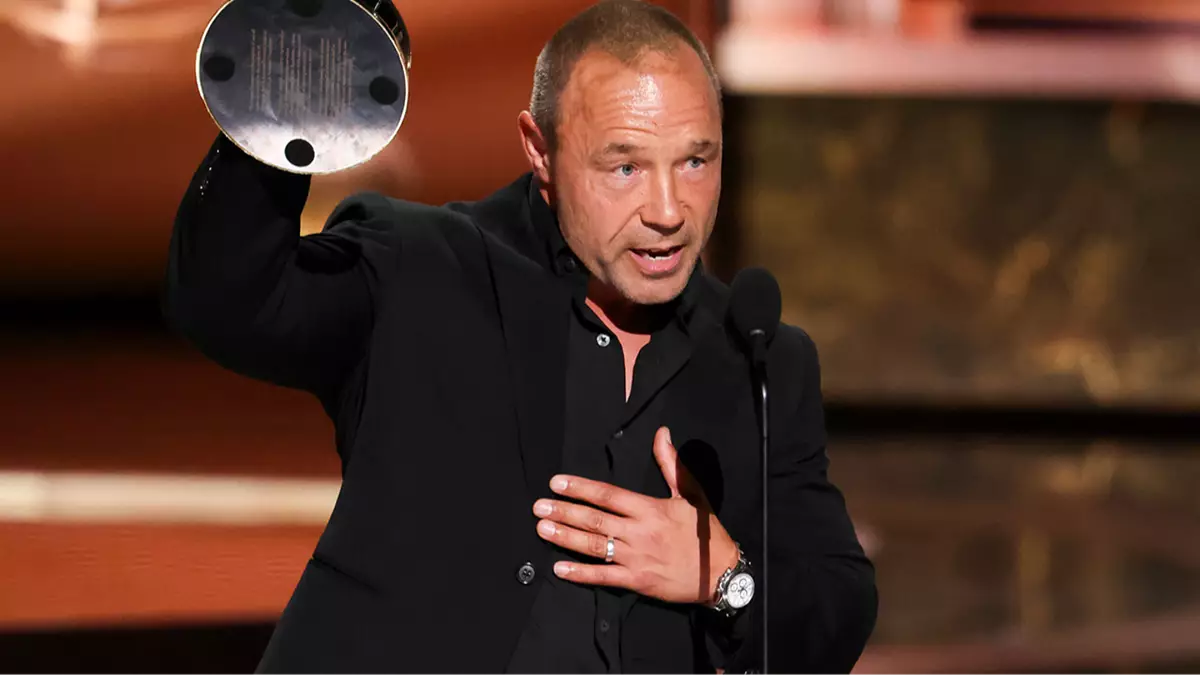By Nick Mordowanec
Copyright newsweek

U.S. Health and Human Services (HHS) Secretary Robert F. Kennedy Jr. has suggested a causal link between mass shootings and the playing of video games, though countless studies over the years have failed to definitively connect the two when it comes to a proliferation of violence.Newsweek reached out to HHS via email for comment.Why It MattersThe Make America Healthy Again [MAHA] Commission on Tuesday released its Make Our Children Healthy Again Strategy, described as a sweeping plan with more than 120 initiatives to reverse the failed policies that fueled America’s childhood chronic disease epidemic. Targeted executive actions include to advance gold-standard science, realign incentives, increase public awareness and strengthen private-sector collaboration, per the HHS.Kennedy has received criticism for how he’s led HHS, including firing over 600 Centers for Disease Control and Prevention employees and showing an ambivalence toward vaccines and vaccine mandates that last week even drew consternation from some Senate Republicans who challenged the former independent presidential candidate on not following through on his past assurances.What To KnowUpon unveiling the new 20-page MAHA report on Tuesday, Kennedy was asked by PBS News whether the commission has had any discussion on the relation between children’s mental health and firearms.”The firearms question is a complex question, and it’s not an easy question,” Kennedy replied.The health secretary pointed to a “sudden onset of violence” in the 1990s when “somebody walks into a school or a church or a theater and starts shooting strangers.””We’re having mass shootings every 23 hours,” he said, mentioning possible reasons as dependence on psychiatric drugs, video games or social media. He said the National Institutes of Health (NIH) is examining such root causes.He did not elaborate on why he brought up video games, or what the connection could mean in the grander scheme of the conversation surrounding health and safety.”We are initiating studies now that look at the correlation and the potential connection between overmedicating our kids and this violence,” he added.What Studies ShowKennedy’s connection between violence and video games is an argument that has been around for decades, becoming more part of the zeitgeist as gun violence and mass shootings have remained consistent in the United States.But any links he or other lawmakers and advocates make have not been directly borne out of the data. Numerous scientific studies have not found a link between violent video games and mass shootings, according to the American Psychological Association (APA).APA research published in 2019 in the journal Psychology of Popular Media Culture analyzed more than 200,000 news articles about 204 mass shootings over a 40-year period, finding that video games were eight times more likely to be mentioned when the shooting occurred at a school and the perpetrator was a white male than when the shooter was a Black male. Another experiment conducted with college students arrived at similar conclusions.Another 2019 study published by JAMA involved a randomized clinical trial exploring whether children’s exposure to a violent video game increases dangerous behavior around firearms.The trial involved 220 children ages 8 to 12, assigned to play a video game in one of three conditions: with gun violence, with sword violence or with no violence. Compared with children who played a game that was nonviolent, children who played a video game that included violence with guns or swords were more likely to touch a real, disabled handgun, handle a handgun longer and pull the trigger more times—including at themselves or their partner.Reported habitual exposure to violent media was also a risk factor for dangerous behavior around firearms, researchers noted.A study from Oxford that same year found no correlation between aggression in teens and the time spent playing violent video games.”Our findings suggest that researcher biases might have influenced previous studies on this topic, and have distorted our understanding of the effects of video games,” study co-author Dr. Netta Weinstein said.One year later, Ofir Turel, professor of information systems and decision sciences at Cal State Fullerton, theorized that video-gaming and bringing a gun to school have a U-shaped association rather than a linear one.Even going back to 2004, results have varied and direct links between video games and violence were mixed. A study copublished that year by the U.S. Secret Service and Department of Education found that over half of attackers demonstrated some interest in violence through movies, video games, books and other media.”However, there was no one common type of interest in violence indicated,” the study said. “Instead, the attackers’ interest in violent themes took various forms.”Lack of Data Proves ‘Invalid’ ClaimDavid Dupee, adjunct professor at Stanford University, has explored whether there’s a link between violence and video games.In a 2023 op-ed for Fortune, he spoke of how he and the Stanford Brainstorm lab reviewed 82 medical research articles pertaining to any sort of causal link between playing video games and violent behavior. They found none.Dupee told Newsweek via phone on Wednesday that he’s “not surprised” Kennedy brought up video games, saying that politicians have attempted to make the connection for the past two decades without much proof, if any.”There’s a lot of work that’s done looking at correlations, but anyone with the basic grasp of statistics knows that the correlation and causation are two different things entirely,” Dupee said. “I’m not surprised to see this be kind of raised back to the top of the bin, so to speak, once again. But there hasn’t been any new data that suggests that Secretary Kennedy’s take is valid.”The argument in itself is compelling, Dupee said, but that doesn’t mean it’s accurate. He mentioned how first-person shooter video games, which include the popular Call of Duty franchise, have sold millions of copies worldwide for years.”They’re sold very well everywhere, seemingly, and the United States, far and away, has the highest rate of mass shootings or school shootings,” he said. “Specifically, if you want to kind of drill down on that and what differs between these different places is not necessarily the penetrance of video games so much as the availability of firearms.”We can look to, say, Switzerland as a place that has similarly high gun ownership, but pretty strenuous rules and regulations around being licensed for firearms who can actually get them doing good background checks. And we just don’t have those same safeguards in places here in the states.”What People Are SayingPresident Donald Trump, in 2019: “We must stop the glorification of violence in our society. This includes the gruesome and grisly video games that are now commonplace. It is too easy today for troubled youth to surround themselves with a culture that celebrates violence. We must stop or substantially reduce this, and it has to begin immediately.”Lead researcher Patrick Markey, psychology professor at Villanova University, regarding his 2019 study published in the journal Psychology of Popular Media Culture: “When a violent act is carried out by someone who doesn’t match the racial stereotype of what a violent person looks like, people tend to seek an external explanation for the violent behavior.”When a white child from the suburbs commits a horrific violent act like a school shooting, then people are more likely to erroneously blame video games than if the child was African American.”What Happens NextKennedy’s policies on deterring violence, as well as those pertaining to vaccines, scientific research and grants, and mass layoffs at major health agencies, will continue to be closely watched in the months ahead.



